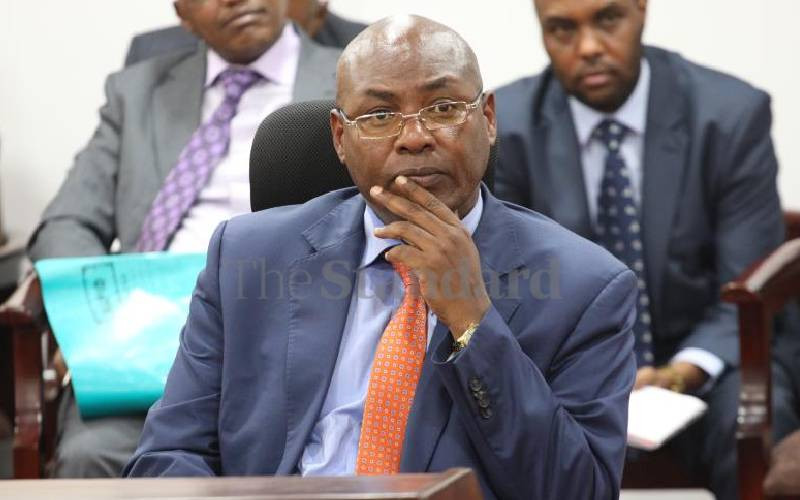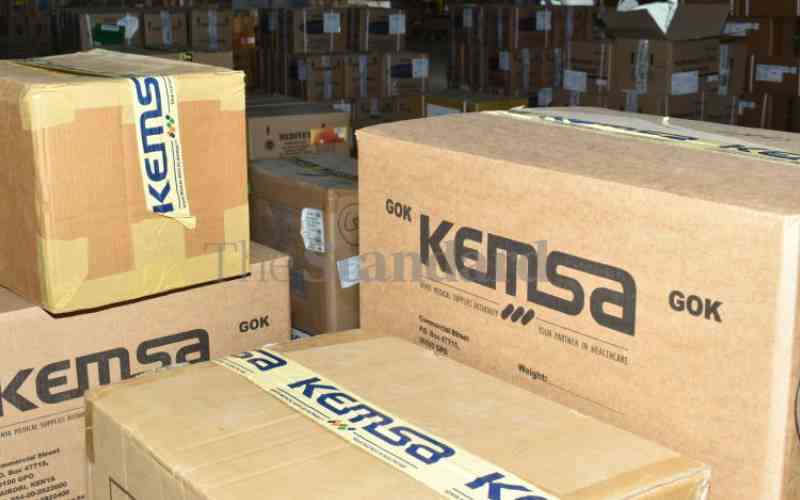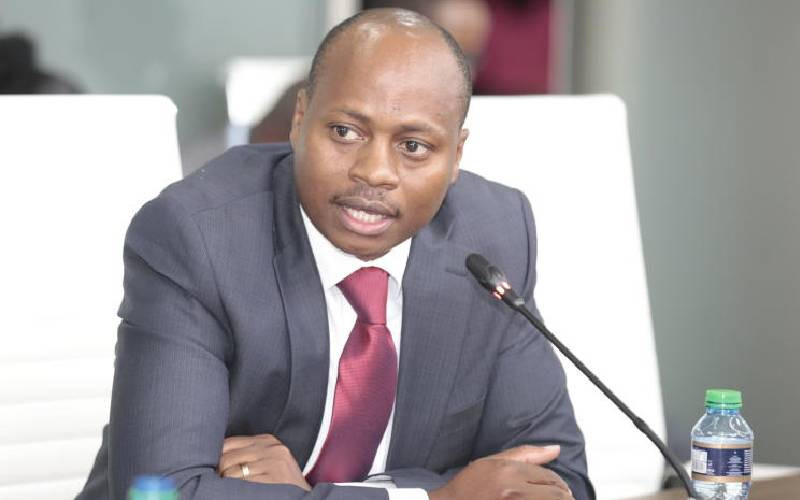
Kenya is exporting thousands of high quality pharmaceutical jobs to India and China despite existing local production capacity.
For example, every time each of the about one million Kenyans on HIV drugs takes a tablet a local job is exported to Asian.
The same goes for malaria and tuberculosis, some of the most highly medicated diseases in Kenya.
Today Kenya is spending Sh38 billion annually on HIV treatments at about Sh1,800 per patient per month.
This market is headed for an explosion as Kenya moves to put about 2.6 million individuals on HIV medicines at a cost of Sh133 billion annually.
The bulk of the money goes to India and China, the main exporters of ARVs through the Global Fund and the US President’s Emergency Plan for AIDS Relief (Pepfar).
This despite Kenya having the capacity and World Health Organisation’s (WHO) certification for the manufacture of ARVs.
Huge expenses
Since 2011 several local pharmaceutical firms including, Cosmos, Legal and Universal Corporation, have installed capacity to produce ARVs with one of them prequalified by WHO.
This means it can participate in the large donor supported local and international tenders for supplying ARVs, malaria and tuberculosis medicines.
According to the United Nations Industrial Development Organisation (Unido) another 34 local companies are working to attain improved production status by 2021.
But despite huge expenses to attain the global quality standard, Unido in a recent report says local manufacturers are still locked out of most donor funded procurements even at the Kenya Medical Suppliers Agency (Kemsa).
“It is ironic that during stock-outs and emergencies, companies like Cosmos and Universal have supplied urgently needed ARVs, for which they could not bid during the normal procurement process,” says Unido.
This imbalance came to the fore during the recent visit of President Uhuru Kenyatta to China where he called on the emerging superpower to engage Kenyans in quality jobs.
Stay informed. Subscribe to our newsletter
Attending the Belt and Road Forum in China President Uhuru Kenyatta said Kenya, must move from being mere consumers of imports of finished goods to manufacturers and exporters of quality products.
Currently, his government and donors are planning to scale up use of ARVs from current 900,000 to about 2.6 million Kenyans within five years.
At a modest estimate of Sh133 billion annually the supply of ARVs will be one of the largest trading commodity within Kenya and the regional market.
The scale up of HIV treatment is however not unique to Kenya with UNAids calling on raising ARVs coverage from the current 18.2 million patients to 30 million people by 2020.
“This could present a production and logistical nightmare,” says Brian Elliott an international consultant on pharmaceuticals in a recent high profile opinion piece in the US Financial Times.
Elliott is the chief executive of Procela Consultants of US, which advices governments, international agencies and pharmaceutical companies on medicines in poor countries.
To ensure treatment for 30 million people by 2030, Elliott argued, the major buyers, Pepfar, Global Fund and South Africa must stop dependency on just a few suppliers.
Currently, Mylan, Hetero, Cipla and Aurobindo, all pharmaceutical manufacturers from Asia provide more than 83 per cent of all ARV generics to poor countries.
Dependence is dangerous
Elliott argues that it is foolhardy to trust this immense responsibility on just a few suppliers citing some past disruptions that may have threatened the lives of patients.
“This dependence is dangerous. Big buyers must allocate their purchases to all manufacturers that meet quality standards and even those with limited capacity.”
Luckily for local manufacturers, some major ARV buyers seem to have similar concerns.
Responding to Procela, the Director of Research at the Office of the US Global Aids Coordinator has called on the global health community to make submission on the matter to the office.
Such submissions, he said would help the office consolidate its position at the next WHO’s ARVs procurement meeting.
“Our pharmaceutical sector has the capacity and technology to participate in such international tenders,” says Flora Mutahi, the chairlady Kenya Association of Manufactures (KMA).
“That is right,” says Palu Dhanani, chairman of the Federation of Kenya Pharmaceutical Manufacturers.
Several local drug companies he says have spent huge amounts of resources to install globally accepted standards called GMP or Good Manufacturing Practice.
But discriminative government policies, he says shut them out of the Global Fund and Pepfar funded ARVs market.
When the donors supply imported drugs to the government, he explains they are exempt from all import duties, levies and taxes in Kenya.
But if the same donor agencies were to buy from local manufacturers, the Kenyan government would first take away a railways development levy and an import declaration fee.
“This, at four per cent may be a small amount but it has a huge effect on competing in international pricing,” explains Dhalani also a director at Universal Corporation.
KMA has petitioned the government to remove the railway and the import declaration levies. “These two charges should be done away with completely as they are duplicitous in nature and they make Kenyan goods non-competitive,” says KMA in her 2017 industrial transformation agenda.
In Uganda, a factory to manufacture mainly ARV and antimalarial drugs was opened in October 2007 . The joint venture between a local company, and Indian generics manufacturer saw the cost of these life-saving remedies drop from between US$ 15 and US$ 9 to between US$ 9 and US$ 2 per patient per month, according to WHO.
In 2015 while chairing a high-level meeting on HIV at the United Nations Headquarters in New York, President Kenyatta had talked of his commitment to the manufacture of Aids medicines locally.
However while he contributed some Sh200 million to the Global Fund kitty the President did not seem to have the proper briefing on the status of ARVs production.
The President had said Africa was on its way to start production of ARVs while in reality manufacture in Kenya had taken off almost four years ago but struggling under unfair government policies.
Specific incentives
The office of Dr Chris Kiptoo the PS Ministry of Industry Trade and Cooperatives says they are working hard to ensure a fair trading ground for local manufacturers.
Technocrats at the ministry’s international trade department say they are addressing the unfair advantage enjoyed by foreign drug importers to Kenya.
They say the Government is in the process of launching the National Trade Policy that will comprehensively address the concerns of local pharmaceutical manufacturers.
Health Cabinet Secretary Cleopa Mailu says the proposed policy will offer specific incentives to local pharmaceutical companies for increased production.
Some of the incentives to be offered, says Dr Mailu will have Kemsa give preference to locally produced medicines in public procurement and removal various prohibitive tariff barriers.
www.rocketscience.co.ke
 The Standard Group Plc is a
multi-media organization with investments in media platforms spanning newspaper
print operations, television, radio broadcasting, digital and online services. The
Standard Group is recognized as a leading multi-media house in Kenya with a key
influence in matters of national and international interest.
The Standard Group Plc is a
multi-media organization with investments in media platforms spanning newspaper
print operations, television, radio broadcasting, digital and online services. The
Standard Group is recognized as a leading multi-media house in Kenya with a key
influence in matters of national and international interest.
 The Standard Group Plc is a
multi-media organization with investments in media platforms spanning newspaper
print operations, television, radio broadcasting, digital and online services. The
Standard Group is recognized as a leading multi-media house in Kenya with a key
influence in matters of national and international interest.
The Standard Group Plc is a
multi-media organization with investments in media platforms spanning newspaper
print operations, television, radio broadcasting, digital and online services. The
Standard Group is recognized as a leading multi-media house in Kenya with a key
influence in matters of national and international interest.










